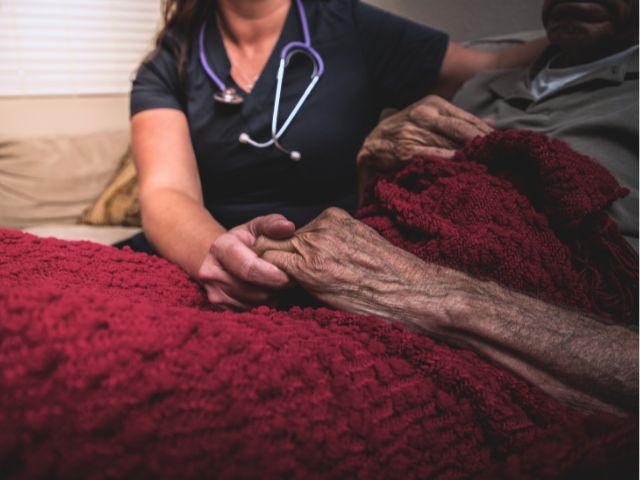My Story
I started my career as an oncology nurse, as you can imagine I learned quickly that not every story has a happy ending. Working on a bone marrow transplant unit, patients would stay on the unit months at a time, meaning that rapport between the nurses and patients became very strong. I would go to work and dive headfirst into the deepest, hardest part of a patient’s life and give everything I had to make it better.
Whether it was talking to them and providing support, buying them smoothies because it was the only thing they could keep down when they had mucositis from chemotherapy, sharing life experiences and pictures, making them laugh, giving them hope. Most days I would run out of energy and empathy trying to support my patients as much as I could, but there was never a day I regretted it.
Patients would send cards to the unit telling us how happy they were and how amazing they were doing. They would get their life back, and you would feel the excitement of knowing you were part of that.
It is such a special feeling. Unfortunately, never every story happened like this.
I started my career as an oncology nurse, as you can imagine I learned quickly that not every story has a happy ending. Working on a bone marrow transplant unit, patients would stay on the unit months at a time, meaning that rapport between the nurses and patients became very strong. I would go to work and dive headfirst into the deepest, hardest part of a patient’s life and give everything I had to make it better.
Whether it was talking to them and providing support, buying them smoothies because it was the only thing they could keep down when they had mucositis from chemotherapy, sharing life experiences and pictures, making them laugh, giving them hope. Most days I would run out of energy and empathy trying to support my patients as much as I could, but there was never a day I regretted it.
Patients would send cards to the unit telling us how happy they were and how amazing they were doing. They would get their life back, and you would feel the excitement of knowing you were part of that.
It is such a special feeling. Unfortunately, never every story happened like this.









